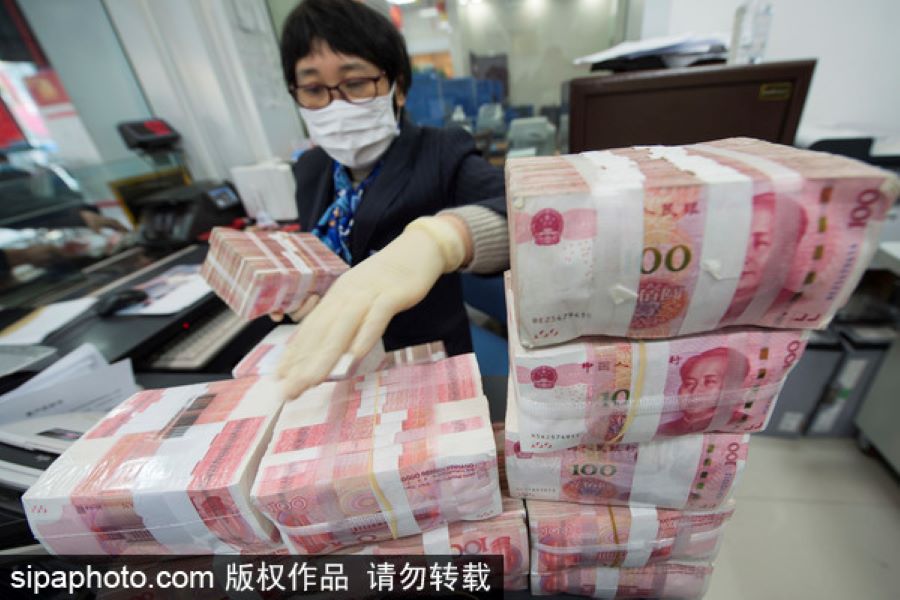Nation to curb loan fraud, financial risks


Regulator vows strong action against diversion of bank funds to arbitrage
China will resolutely curb the resurgence of various types of financial risks and properly handle new challenges arising from the complicated economic and financial situation amid the novel coronavirus outbreak, regulatory officials said.
Li Mingxiao, head of the China Banking and Insurance Regulatory Commission's Beijing office, said the regulator will strictly check and severely punish misbehavior of diverting bank loans from serving the real economy to arbitrage.
"With the help of big data, we recently found that some companies, while obtaining loans from banks, were actually engaging in arbitrage by purchasing wealth management products, putting money into structured deposits, or even investing in the stock market or the housing market through regulatory violations," Li said.
"These are key issues that we will take measures to address, and we will improve our regulatory capacity through data governance."
The arm of the CBIRC in Beijing will do its best to ensure that funds flow into the real economy, the part of the economy that produces goods and services. It will also closely monitor credit risk and high-risk financial institutions to effectively prevent and control major financial risks, he said.
The country's top banking and insurance regulator will firmly crack down on banks' financial statements' whitewash, urge banks to classify their assets precisely, truly expose their nonperforming loans, and establish loan impairment provisions in full. It will also guide banks to step up the disposal of NPLs through multiple measures, a spokesman of the CBIRC said on Thursday.
Guo Shuqing, Party secretary of the People's Bank of China, said at a meeting on Wednesday that the central bank will remain vigilant against various factors of instability and seriously judge and quickly respond to them. It will stick to the bottom line that no systemic financial risks should occur.
From Jan 25 to May 15, China deferred payments on 1.28 trillion yuan ($180 billion) of the principal on loans that reached maturity for 750,000 micro, small and medium-sized enterprises due to the novel coronavirus outbreak. Various banking institutions also helped 579,000 MSMEs postpone repayments of 55.99 billion yuan in interest on loans that reached their full terms.
The CBIRC will urge banking institutions to further delay loan repayments according to the trends of the pandemic and the state of operation of MSMEs.
This is not an attempt to hide nonperforming loans, said Bao Zuming, head of the CBIRC's office in Zhejiang province.
"The commission has made it crystal clear that banks must adopt a penetration strategy to manage risks of the companies to which they offer loans. They must know the state of orders of their corporate clients, make quantitative assessment of the level of the pandemic's impact on each company, and make good judgments on the future state of their clients," Bao said.
"What we want to do is to prevent banks from rigidly classifying overdue loans of good companies that are temporarily affected by the pandemic as nonperforming loans."
Banks will decide whether to support a company or not based on such factors as its management, its credit records in the past, and the qualities of the entrepreneur.
"However, as the uncertainty of the pandemic is too huge, it is a big challenge for banks to make accurate assessments and judgments on their clients, so we have been working together with banks to solve the problems during this period," Bao said.
The CBIRC will also keep cracking down on shadow banking. It will build a comprehensive statistical monitoring system, focus on strengthening the monitoring and analysis of high-risk shadow banking business, and take proper actions to mitigate risks, the spokesperson said.
By the end of April, incorporated banks in Guangdong province saw the volume of their interbank wealth management business fall 69 percent from the end of April last year, and the volume of the "channeling business" of trust companies declined by 24 percent from the beginning of this year, said Pei Guang, head of the CBIRC's Guangdong office.
In channeling, banks, companies and individuals invest customers' deposits or their own money in high-yield products via "channels", which are usually nonbank vehicles such as trusts-to achieve higher returns.
This year, the regulator in Guangdong stepped up risk monitoring and pressure tests on banking and insurance institutions under its supervision, and put the results of pressure tests to good use, Pei said.




































